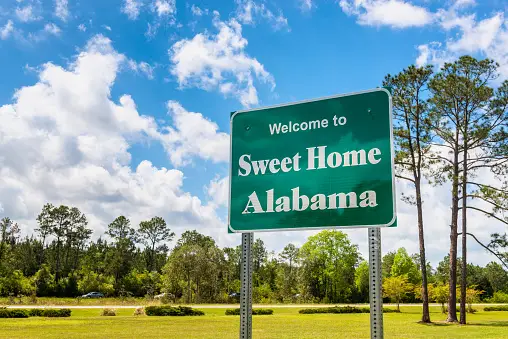Looking North from South: What we can learn from a gay southern teenager

A light mist was resting on the historic landmarks that dot our nation’s capital as my chartered bus pulled into Washington, D.C. at 7 a.m. The sun was lazy — barely peeking out from the clouds. The groups gathering were electric and had already dancing, singing, and chanting words that date back as far as many of these monuments.
“Look at all the escalators, y’all! They’re everywhere! We only have one escalator in my hometown.”
Tanner Faulkner is 15. He is an openly gay teenager living in a part of rural Alabama where the Ku Klux Klan has deep roots. His passion for justice is so strong he made the pilgrimage to the Women’s March on Washington by himself.
He is our future. For the first time in a long time, I’m feeling optimistic.

My journey here is a longer one. I’m a (much older than him) lesbian who spent most of my life in the closet. Afraid. Ashamed. Fearful of an eternal damnation drilled into my head since birth. I left my church long ago. Not Tanner. He’s a proud Christian. He and his boyfriend go to church every Sunday. While in D.C., he visited a Methodist church.
“They had a woman pastor,” he said. “I’ve never met a woman pastor before.”
I assumed he didn’t know the world can be a dangerous place for people like us. I was wrong.
“There is no harder place for a gay person to live than in Alabama and Mississippi,” he said. “Faggot is a word that is used down here so loosely. It’s so demeaning and detrimental to the spirit.”
This, he emphasized, provides greater opportunities to work for change.
He’s currently planning to start a chapter for student democrats in his high school. During the election, he registered 100 voters by going door-to-door. He spent every single day volunteering at his town’s small democratic headquarters, and noted he’s “fixing to start another voter registration drive to get more voters in the projects and places where no one wants to go. We desperately, desperately need them.”
Tanner is from Gadsden, Alabama — a town with less than 37,000 people. The most recent census figures show a per capita income of less than $19,000. A full quarter of all residents live in poverty. Research out of the University of Alabama shows two-thirds of those living in this rural town are either unemployed or underemployed.
“It isn’t easy,” he said. “The south is a very unforgiving place.”
Unforgiving is not a word Tanner uses often. During his campaign work, he said a teacher asked him in front of his entire class if he “advocates the killing of millions of babies.” She called him a baby-killer because of his pro-choice stance, and the school did nothing about it. When I suggested that she should be fired, he disagreed.
“These people should not be penalized for not knowing better,” he said. “That is something she has believed since she was a very small child. Be forgiving because nine times out of ten, they think they’re helping you in the best way they know how.”
Some of us more seasoned organizers might disagree. We live in Colorado, a blue state where it’s not unusual to see same-sex couples walking hand-in-hand. I am no longer afraid to be who I am. But I am angry. Anger brought me to the march in Washington.
With each step, I found my anger was replaced with gratitude. Seeing this historic moment through the eyes of a 15-year-old brings a sharper focus. We will not be silent. We will stand together. We are kind. We are loving. We are supportive. And we are fierce.
“Knowing who Donald J. Trump is, I did not expect [the march] to change his agenda at all,” he said. “But the march had a bigger personal value than political. It was an excellent opportunity for us to lift each other up. To love one another — the minorities, the Muslims, the gays — and to keep us people we need to be.”
I didn’t see a single shot fired, a single stone thrown, or a single harsh word spoken. Yet the message sent reverberates across the globe and continues to catch fire. Tanner says he wants to be a teacher someday. I think that day is already here.
What's Your Reaction?
Yvonne Wright is an Emmy-award-winning journalist who is a connoisseur of great literature and mediocre TV.










